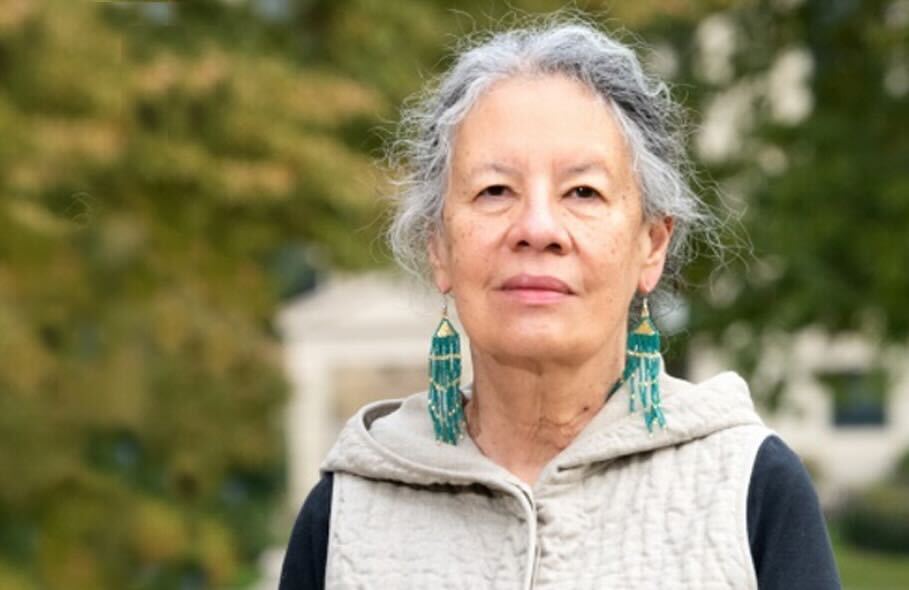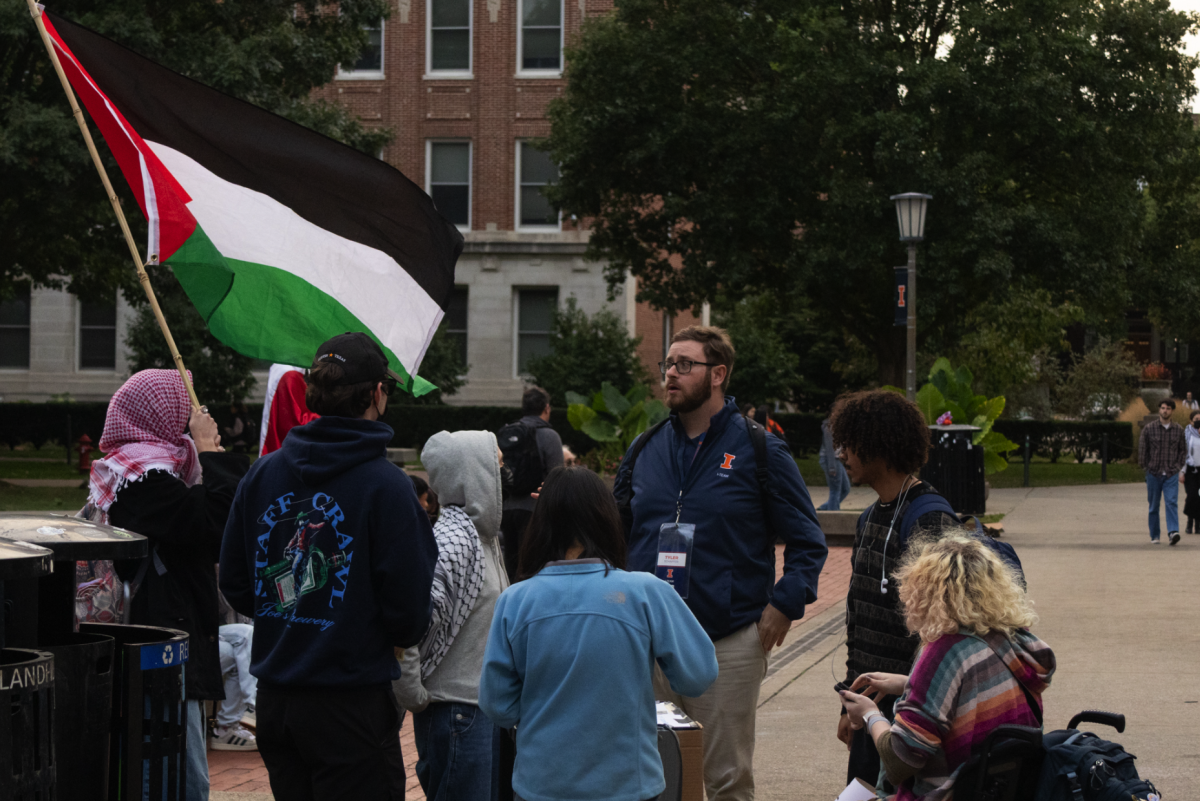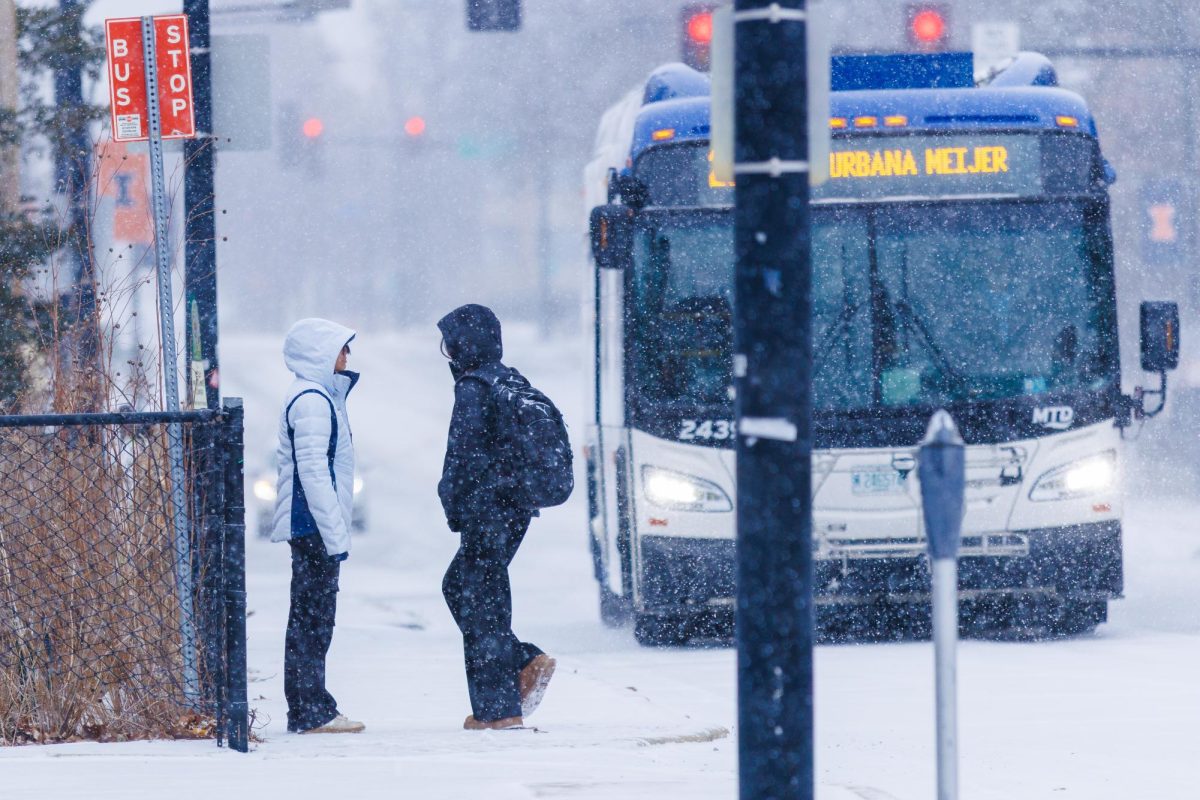Last updated on March 8, 2024 at 10:50 a.m.
When Jacki Rand, associate vice chancellor for Native affairs, began working to mend the damaged relationship between the University and Native communities, she asked a prominent tribal leader what she could hope to accomplish in three years — to which he responded: not much. He said she could hope for introductions and careful conversations within that time.
On Feb. 8, the University administration informed Rand that she would not be continuing in her role as the vice chancellor for Native affairs. Her three-year appointment was supposed to end in July. This decision raised concerns from academics about how the University’s actions will affect its relationship with Native American communities.
“I’ve heard phrases such as ‘Illinois is having an institutional crisis,’ ‘Illinois is experiencing institutional failure in its relationship with Indigenous Peoples,’” said Rosalyn LaPier, professor in LAS.
The University created the position of vice chancellor for Native affairs in 2021, and Rand, a Native American scholar, became the first person in the role. Her mission was to serve as a liaison between the University and Native and tribal communities, working to mend the destructive history of the University in its treatment of Native people. Rand also works as an associate professor in LAS.
Get The Daily Illini in your inbox!
The University has not made a public announcement about its decision to not renew Rand’s contract. The position will not be closing, and a successor will be chosen in July 2024, according to an email from Robin Kaler, associate chancellor for strategic communications and marketing.
Rand launched four initiatives during her time, which included a summer bridge program bringing Native American high school students to the University.
Rand, however, was left frustrated by the University’s decision to end her appointment, feeling as though the position requires long-term commitment, and three years was not enough time to accomplish the mission she set out on.
“My networks were just beginning to establish in Northeastern Oklahoma and Chicago,” Rand said. “My job was supposedly based on building relationships with tribal governments and communities, which cannot be accomplished overnight, especially given the University’s long, destructive history with American Indians.”
Beyond the issue of time, Rand outlined several other challenges she faced during her appointment. According to Rand, the University did not lay out a clear vision for the position and also fell short of supporting her with a proper budget.
“If you read my job description, it’s general and vague; it has an outline of something substantive but the details are lacking, and I was promised a budget that I never got,” Rand said.
Rand also said the University did not provide her with proper training or proper staffing, saying she was not provided with a staff member until two years into her appointment.
This experience caused Rand to see a disconnect between the title of vice chancellor and the resources that she was actually provided. To her, this felt symbolic of how marginalized groups have been historically treated by major institutions, especially Native American people, she said.
“The history of U.S.-Indian relations is full of examples of just this kind of thing: setting up an initiative with minimal resources and pulling out when results are not forthcoming overnight,” Rand said.
Because of this historical mistreatment, many people are concerned with how the University has addressed Rand’s situation so far. News that Rand would not be continuing in her role spread rapidly among academics and prominent members of Native American communities; however, the University has still not communicated any information about their decision.
“Everybody who I talked with is really surprised and shocked, again because of the long history that the University of Illinois has, there could have been perhaps a different way of addressing what is going on in the chancellor’s office,” LaPier said.
LaPier, a Native American scholar, believes the University should be more open about its actions, given the optics of this situation and its potential to further damage the University’s relationship with Native people.
“What people are saying about the University right now is not positive, and again, it just kind of gets added to the list of one more thing that the University is doing that is not addressing this long history,” LaPier said.
It is currently unclear how the search for a successor will be conducted and how the transition will affect the relationships Rand began building. The Office of the Chancellor did not respond to communications asking if it was going to formally announce its decision and when it planned on starting its search.
Beyond announcing the decision, LaPier believes responsibility falls on the chancellor to be transparent with the public about plans for the position.
“I think the responsibility of this situation is firmly in the chancellor’s office, and with the chancellor himself,” LaPier said. “He really needs to be the one that takes responsibility for what has occurred and what will happen in the future.”







